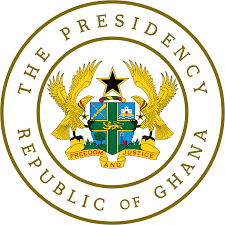Nigeria: Global Unveil Initiative Launches to Fast-Track Lassa Fever Vaccine Development

GALVESTON, Texas – Scientists at the University of Texas Medical Branch’s Galveston National Laboratory have been awarded up to $6.4 million in funding to support an international research consortium to crack one of the toughest problems in infectious disease science: determining which immune responses protect people against Lassa fever.
This funding was awarded as part of a joint funding call by the Coalition for Epidemic Preparedness Innovations (CEPI) and Wellcome, with CEPI providing the funding to UNVEIL, which stands for Unraveling Natural and Vaccine-Elicited Immunity to Lassa fever.
Lassa fever is a zoonotic viral hemorrhagic illness caused by a virus of the same name that circulates in several West African countries, primarily through contact with infected Mastomys rodents and occasional human-to-human contact. It is thought to affect 100,000-300,000 people every year, although the true disease burden could be much higher.
While many infections are mild, case fatality rates can exceed 20 percent among hospitalized patients, and one in four survivors suffers irreversible hearing loss. Additionally, around 95 percent of pregnancies result in spontaneous abortion.
This research will focus on developing tools to identify immune markers or correlates of protection, blood or cellular markers associated with protection from Lassa fever, to support decision-making in vaccine development.
“Identifying reliable immune markers or, ideally, correlates of protection will remove a huge roadblock,” said Dr. Courtney B. Woolsey, a professor in the Department of Microbiology & Immunology and the Principal Investigator of the UNVEIL program. “Once we can measure protection in a blood test instead of a prolonged clinical efficacy trial, we can deliver vaccines to impacted communities much faster.”
“A vaccine is urgently needed against Lassa fever, a deadly disease that continues to burden West Africa,” said Dr. Katrin Ramsauer, Lassa Disease Programme Lead at CEPI. “Knowing the immune markers that correspond to protection from Lassa fever infection and disease and could reliably predict the efficacy of a vaccine will be a milestone achievement in our work against Lassa fever. This research could also give us insights into how we can quickly tackle other troublesome hemorrhagic-fever causing pathogens in the same viral family.”
How UNVEIL Will Work
The international collaboration will involve four frontline clinical sites in Africa that will collect samples from patients and healthy volunteers. Those include Jos University Teaching Hospital, Irrua Specialist Teaching Hospital, and Abubakar Tafawa Balewa Teaching Hospital (Bauchi), all in Nigeria, and Kenema Government Hospital in Sierra Leone.
The team will use cutting-edge machine-learning models to integrate human clinical data with controlled preclinical studies, leveraging an existing large preclinical Lassa fever dataset to pinpoint antibody and T-cell signatures that predict survival.
Validated laboratory assays will be developed so regulators and vaccine makers worldwide can use the new immune markers during testing and licensure of future Lassa fever vaccines and other medical products. Capacity building and training at all African partner hospitals will ensure long-term local expertise in diagnostics, biobanking, and clinical research.
According to UTMB’s Dr. Slobodan Paessler, who will lead Clinical efforts, the work will not only allow for faster vaccine trials, but the methodologies used will lower product development costs. Additionally, by working with institutions in West Africa, it will improve regional health security and outbreak response capacity.
The team anticipates that the methods pioneered for Lassa fever can be adapted rapidly for other emerging threats.
A Team Science Effort
UNVEIL brings together experts in virology, immunology, audiology, bioinformatics, and clinical care from the United States (University of Texas Medical Branch, Washington State University), United Kingdom (Liverpool School of Tropical Medicine), Sierra Leone (Kenema Government Hospital), and Nigeria (Jos University Teaching Hospital, Irrua Specialist Teaching Hospital, Abubakar Tafawa Balewa Teaching Hospital Bauchi). The consortium exemplifies “Team Science,” pooling complementary skills to accelerate pandemic preparedness.
“We are deeply grateful to CEPI for their visionary support of this international health initiative,” said Woolsey. “Their investment enables our global team to tackle one of the most pressing infectious disease challenges of our time, with our goal to accelerate the delivery of safe and effective vaccines to the communities that need them most.”
CEPI funding is provided through a joint call conducted in partnership with Wellcome. Under the call, Wellcome is funding research on bacterial and parasitic diseases. CEPI is funding research into viral-related diseases.
By Nigeria Health Watch.



